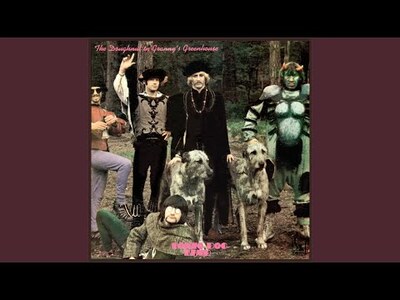
The typewriter changed Nietzsche's style, of course.
https://www.openculture.com/2013/12/friedrich-nietzsches-curious-typewriter.html
The academic motivation for this is straightforward: ever since the devastating postmodern critiques of the grand narratives of history, and the destruction of transcendental signifiers like Reason or religious truth, anthropologists and humanists have failed to swallow their own bitter medicine. Instead, they've made up a vision of the Earth as a new transcendental signifier and climate change as a new grand narrative. Now we're back to business!
Here are some of the animist claims I'm talking about: "Everything is alive," "we are all related to the rocks and trees," "the Earth is sacred," and so on and so on.
I'm not saying that these claims are true or false, but they're given extreme deference based simply on the anguished consciences of liberal academics who want to preserve an inner sense of purity -- preserving their own beautiful souls.
This is obviously an overcorrection to earlier tendencies in anthropology and humanities toward orientalism. I say it's obviously an overcorrection because it gets a hands-off kid-gloves treatment -- on the one hand, all the animist statements are treated with humorless guilt -- BUT on the other hand, if you treat these animist concepts with the rigor that seems befitting to the academics' sobriety, then you're punching down, etc.
Nietzsche would have a field day with these people!
People don't know this, but mainstream academic eco-thought has wholly capitulated to a version of animist beliefs that they attribute to Native American and Australian Aboriginal traditions. There's a little switcharoo where eco-thinkers start off with integrating such "voices" as part of a general liberal tendency towards inclusion, but then at a certain point respectful inclusion flips into a standpoint epistemology where animist beliefs are treated as just as good as scientific knowledge.
You need to be security-through-obscurity-maxxing. You need to be imperceptible in the dark forest. Your actions need to be chaotic and self-ironizing. You need to turn your sensuous characteristics and behaviors into an interpretive trap for those who would seek to pattern your moves. You need to be planting false leads and heuristic traps. Your propinquities need to be delusional and holographic. James Jesus Angleton-core. A knife in the dark. A wilderness of mirrors. You need to be anti-telic
The Pure Soul must be understood to be against authentic community and against the weak: the Pure Soul is committed most of all to complacency and its handmaiden, delusion. Delusion whitewashes everyone's intentions. Complacency wraps the moral sensibility in gauze so thick that you can't see through it.
This opens up a third point: the Pure Soul actually has to act out of a state of moral exception in order to preserve their belief in the reconciliation of all human intentions. They actually have to help the vicious prevail and let the weak suffer because opposing the vicious guarantees dissonance for the Pure Soul. By contrast, if the vicious quickly and efficiently prevail against weak, then the Pure Soul can re-interpret this in Girardian terms: the weak become sanctified by vicious violence
Second, on the basis of the first point, you have to recognize that the Pure Souls will never be able to form good-faith, committed alliances with other people who pursue rivalrous or positional goals. The Pure Souls can never commit to breaking the other team, body & soul, because the Pure Souls have to believe at some level that the other team's goals are equally valid. And this means that Pure Souls exclude themselves from many forms of sincere and spontaneous human community.
There are Pure Souls who want to imagine that all intentions are, at some level of abstraction, honorable, and so therefore they believe they can honor and support everyone's goals and wishes all the time. Such Pure Souls are lying to themselves.
First and most obviously, many people want things that are rivalrous (winning the game) or positional (being at the top of the list). And it's pure distortion for Pure Souls to characterize those desires as good-natured"may the best man win" liberality
Silence does not speak. Nature does not speak. Even God is silent, except perhaps in the voice that humans find in themselves in the presence of God's silence.
People will argue against this. They will insist that silence bears meaning, and they will tell you what it means. People will say that nature speaks constantly in terms perfectly compatible with contemporary conversations. People will even say that their words are the words of God.
They are all liars and you do not have to respect them
"Thinking…consist[s] in the living inferential metaboly of symbols whose purport lies in conditional general resolutions to act. As for the ultimate purpose of thought, which must be the purpose of everything, it is beyond human comprehension…[But] by action, through thought, he grows an esthetic ideal, not for the behoof of his own poor noddle merely, but as the share which God permits him to have in the work of creation."
~ CS Peirce
The Logos, for a Peircean neoplatonist, is this property of the relationship patterns reviewed in emergent and dynamic behavior patterns. Logos from Nomos, and Nomos from Eros: Reason is built from the Law, and the Law is built on the Ends.
This exercises non-efficient "finious" (basically, final) causation throughout history: the lawlike alignments of all phenomena in phenomenon-space accumulate along emergent pathways.
The Logos writes itself from the absolute totality of those pathways.
Humanist interested in the consequences of the machine on intellectual history.





